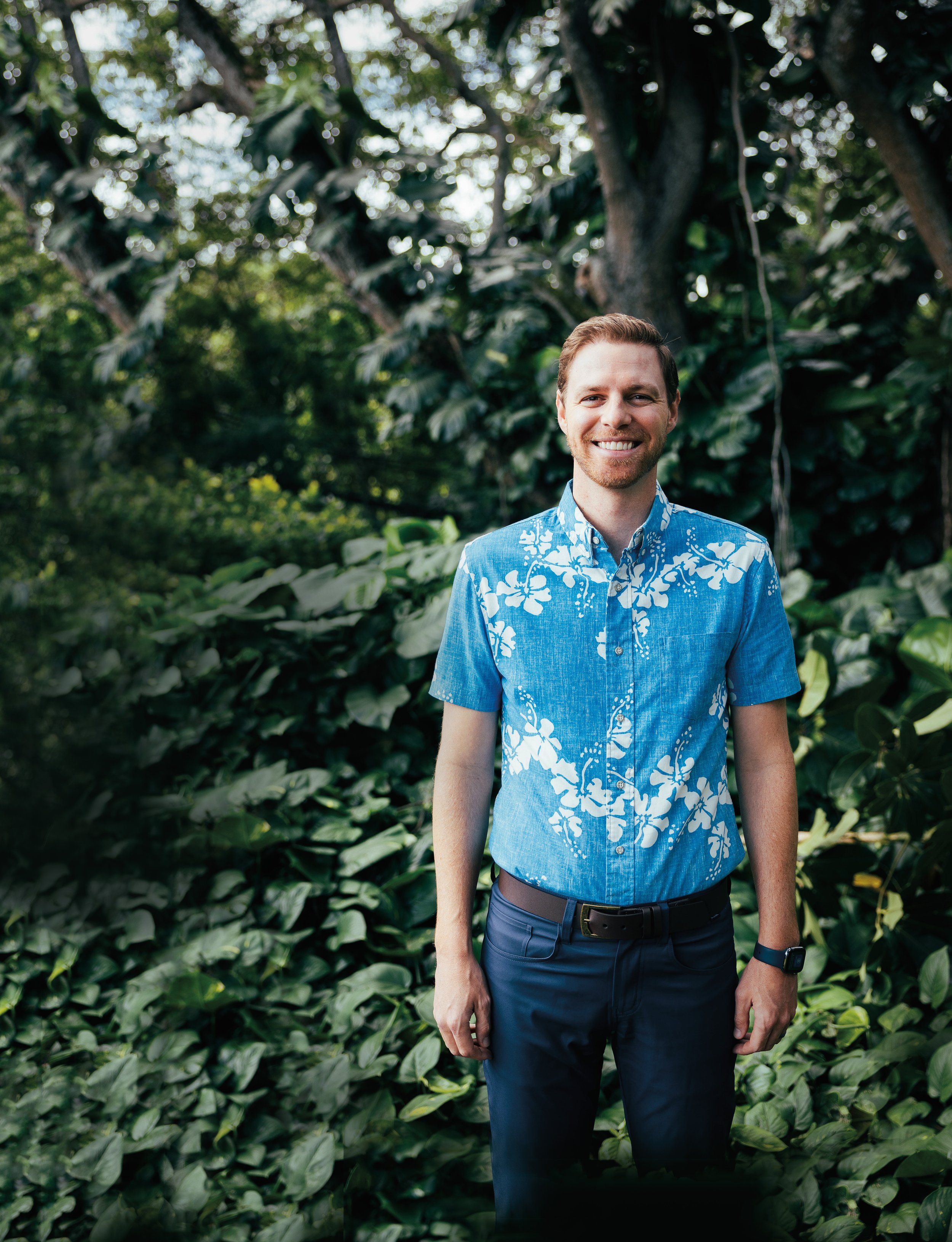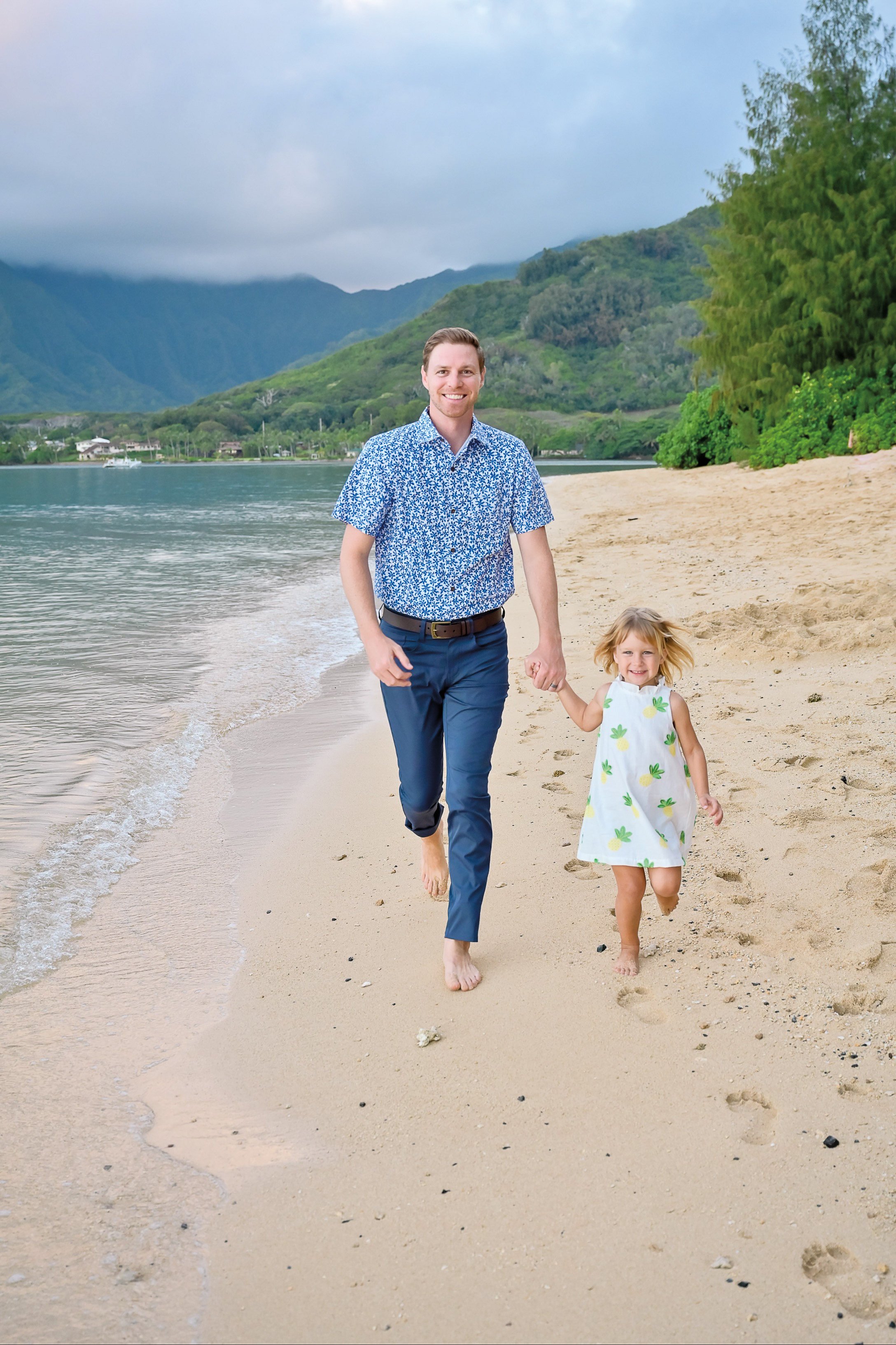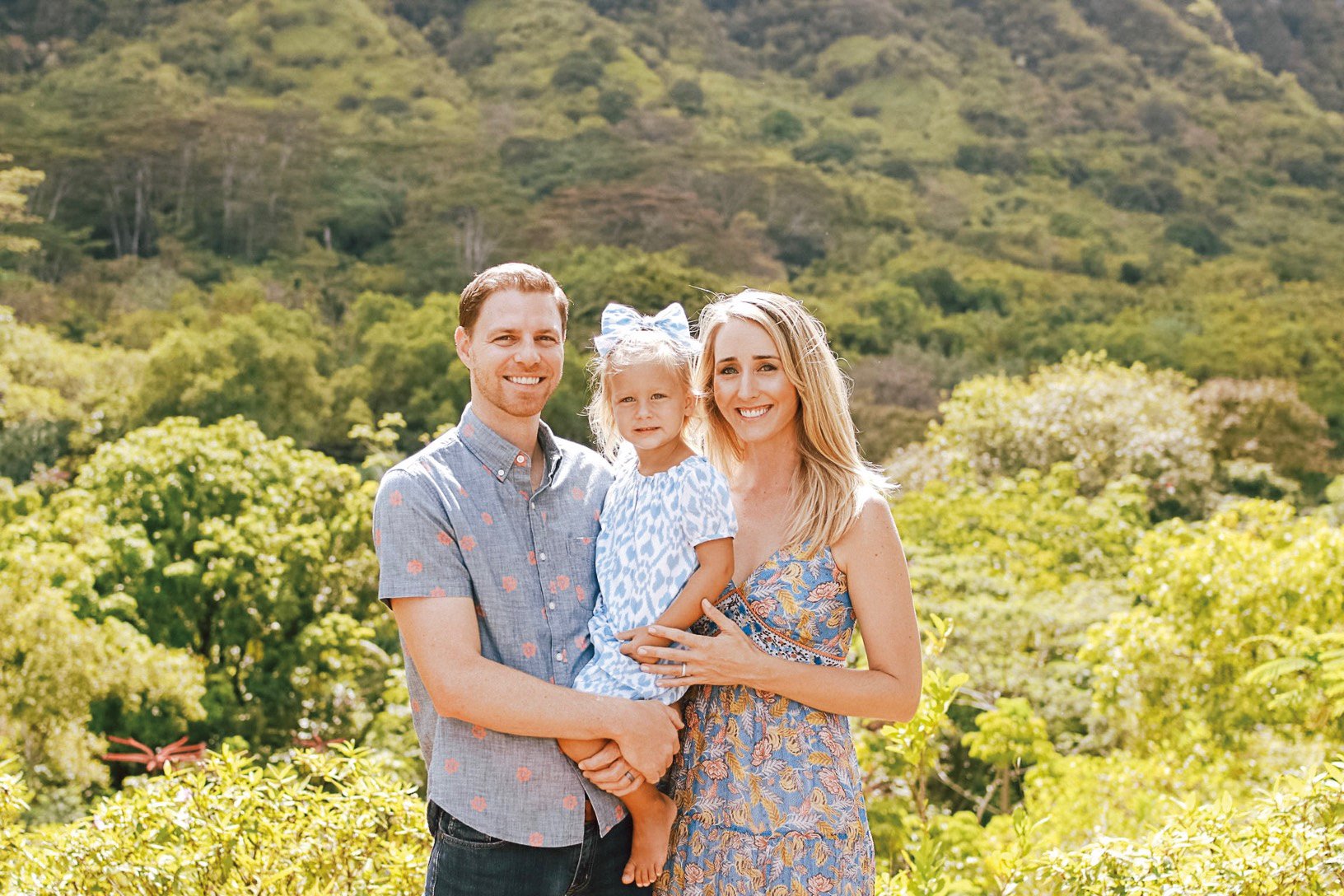Forging Ahead



A teddy bear sits in the corner of Ryan Ashlock’s office at Adventist Health Castle — a heartfelt reminder that he comes from a health care legacy, where the motto is “love matters here,” and the mission is to treat everyone like family.
The bear wears a Castle Medical aloha shirt that belonged to Ashlock’s grandfather the late Frank F. Dupper, who was Adventist Health’s co-founder and president. Ryan Ashlock’s mother Debbie Ashlock, formerly an Adventist surgical nurse, gifted the bear to her son after his beloved “Pops” died.
Ryan Ashlock, who was named president of Adventist Health Castle in March 2021, also keeps another precious memento, one of Dupper’s earlier business cards, on the bookshelf.
“We were both in the same roles at different times at our hospital in Glendale,” he says. “I always asked my Pops, ‘How did you become so successful in your role and what advice would you give me as I continue to develop in my career.’
“It came back to two things — work hard, and everything else will take care of itself. He also said to treat everyone with dignity and respect.”
Ryan Ashlock’s father, Mark Ashlock, who had his own accounting firm and then rose to Adventist Health’s president of physician services, was another mentor, and part of Ryan Ashlock’s extended family legacy within the Seventh Day Adventist’s Protestant integrated network of hospitals and clinics.
Ryan began his career in public accounting, but in 2012 joined Adventist Health, a place where his roots run deep, and his sense of family responsibility isn’t limited to his relatives.
“Our associates are our family; our patients are our family,” he says. “We want to make sure that we create an outstanding work environment and an outstanding environment for our patients. We want to treat everyone with love and respect.”
Ryan says the importance of that philosophy really hit home while he was working as finance officer at Adventist Health Feather River. By happenstance, he was the hospital’s executive in charge on Nov. 8, 2018, when Camp Fire erupted.
The deadliest and most destructive wildfire in California’s history, Camp Fire killed 85 people, destroyed more than 19,000 buildings, including homes and businesses, and nearly razed the town of Paradise, where Adventist Health Feather River was located.
“It was a once-in-a lifetime experience of having to evacuate a hospital, in 45 minutes,” Ryan says. “We had 67 patients, which for us was a high census, and the ambulance couldn’t get there so we had to evacuate them in personal cars.”
He says that the lower half of the hospital burned, and the upper part of the hospital’s roof was damaged by embers. Significant rains followed adding water damages to the challenges.
Ryan adds the fire shutdown the facility, displacing most of its 1,000 workers, about 60% of whom were already dealing with the loss of their homes.
He recalls that the challenges extended well past the historic fire, “How do you quickly recover the organization so that you can get your services back open to allow your staff to come back to work, and equally as important to start caring for your community again?”
Ultimately, Camp Fire showcased Ryan’s ability to lead, and opened doors in his career that led him to Hawai‘i, where he joined Adventist Health Castle in April of 2019 as operations executive, less than a year before the start of COVID-19 in the islands.
By the time Ashlock was named president of Adventist Health Castle, COVID-19 was raging. Following Camp Fire, it was a challenge that he was prepared to meet.
“No doubt [COVID] created extreme pressures and extreme challenges within the organization,” he says. “But you are a little more prepared to react to something that is health care related than a natural disaster.”
Ashlock says one of the big lessons that he carried from Camp Fire into COVID was the importance supporting the team.
“It has been so critical two years into this to ensure that the team had all the tools and resources and information that they needed to effectively be able to respond to the emergency situation,” he says.
While Hawai‘i has seemingly made it out of the worst of COVID, Ashlock says it’s left lasting impacts on his staff and the community that they serve.
Healthcare workers are burnt out and traumatized. Patients are sicker from deferring health care. Economic problems have created more stress. Isolation has led to more demand for mental health services, even among pediatric patients, who were once a rarity.
Ashlock says Adventist Health Castle’s focus now is on driving “well-being for the communities that we serve” and on “preventative health so that people can thrive in their everyday lives.”
